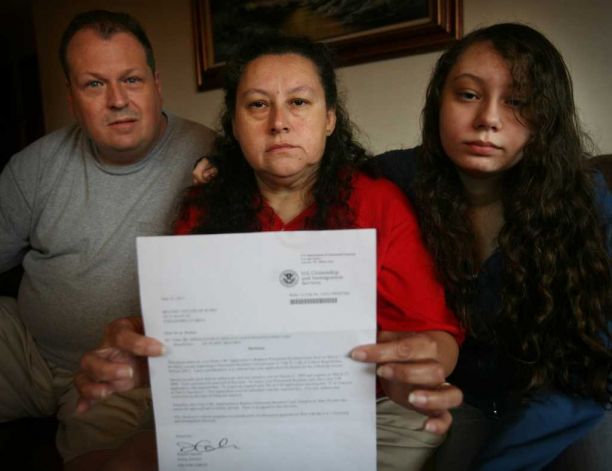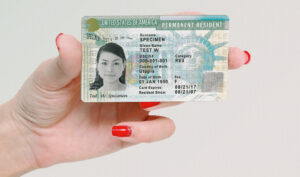
Your chances of having a green card renewal denied are on the rise. In fact, based on U.S. Citizenship and Immigration Services (USCIS) data reviewed, the number of denied applications increased over the last decade. All of this comes when USCIS has increased the fee to renew green cards over 300% in the last 20 years.
After receiving USCIS applications and petitions, USCIS reports that they reject approximately 8% of forms. Then, thousands more green card renewal applications, Form I-90, Application to Replace Permanent Resident Card, are denied.
In fiscal years 2016-2017, USCIS denied an average of 30,242 applications per year according to government data. From 2018-2019, that average exploded to 103,140 denials per year. Too many applications are getting denied for unnecessary reasons. When USCIS denies an application, the immigration agency keeps the filing fees and the applicant is denied benefits. If certain immigration violations are exposed in the review process, this can lead to significant legal problems for the applicant.
RECOMMENDED: Expired Green Card Creates 5 Big Problems
Top 4 Reasons Green Card Renewal Denied
There are a variety of ways that USCIS may deny Form I-90. Most people won’t run into a problem, but the impact can be significant. Here are four of the most common reasons USCIS may deny a renewal application for a green card:
REASON 1 | Form I-90 Denied for Committing a CrimeSome crimes are deportable offenses. However, there is no simple list of crimes for you to check. If you have a felony or misdemeanor conviction, it is always wise to get a quick consultation from an immigration attorney before filing Form I-90 to renew your green card. Don’t rely on what you’ve heard or read on the internet. Get professional advice from a experienced, licensed immigration attorney. Remember, it’s better to play it safe than to get your green card renewal denied. In many cases, an experienced attorney can successfully obtain a renewed green card for clients that have deportable crimes. Read more about Renewing a Green Card After an Arrest. |
REASON 2 | Form I-90 Denied for Lying on Renewal ApplicationAfter filing Form I-90, USCIS will schedule you for a biometrics appointment. At the appointment, USCIS will ask you to re-affirm under penalty of perjury that all of the information in your application is complete, true, and correct and was provided by you. If you obtained assistance from a friend, family member or attorney to prepare the application, you must disclose this information. Likewise, indicate if you received help from a language interpreter. Knowingly submitting incorrect information on Form I-90 and lying to USCIS officers is against the law and will result in an I-90 denial. It’s simple — be truthful. If you believe that the truth will damage your chances, you should consult with an immigration attorney. |
REASON 3 | Form I-90 Denied Because You Were Ordered RemovedIf you were ordered removed from the United States since obtaining permanent resident status, you will likely get your green card renewal denied. “Ordered removed” has a very specific meaning. You have only been “ordered removed” if one or more of the following happened to you:
“Ordered removed” also does not apply to you simply because you have one of the following immigrant visa (class of admission) categories: Z11, Z13, Z14 and Z15. These visa categories are based on a “suspension of deportation” or “suspension of removal.” This is different than being ordered removed. |
REASON 4 | Form I-90 Denied for Using Wrong FormEvery year many conditional permanent residents incorrectly file Form I-90. Conditional permanent residents should only use Form I-90 to replace a green card (i.e. lost, stolen, damaged or incorrect information). A conditional permanent resident should never file Form I-90 to renew a green card; this will result in a denial. If you became a conditional permanent resident through marriage to a U.S. citizen or permanent resident and your conditional status is expiring within the next 90 days, file Form I-751, Petition to Remove Conditions on Residence. If you became a conditional resident based on a financial investment in a U.S. business, file Form I-829, Petition by Entrepreneur to Remove Conditions. |
CitizenPath Guarantees Your I-90 Will Be Approved
When you prepare your I-90 application on CitizenPath, we provide simple, step-by-step instructions and alerts to help you avoid costly delays. We even guarantee USCIS will approve your form. No credit card is required to try it.
And What About These Issues?
Renew Green Card Too Early
Although it’s unlikely that USCIS will deny an early green card renewal, they will most likely reject it. USCIS requests that applicants do not renew a green card more than 6 months prior to the expiration date on your current card. To learn more, read When to Renew Green Card.
Extensive Travel Abroad
Traveling abroad for more than one year at a time or spending significant amounts of time outside the U.S. over multiple trips probably won’t result in getting your green card renewal denied. However, it can lead to green card abandonment or create an obstacle to U.S. citizenship. Avoid taking any trips abroad that are six months or longer. Learn more about becoming a U.S. citizen.
Unpaid Taxes
As a U.S. citizen or immigrant working in the United States, you may be legally obligated to file an income tax return. Although this most likely won’t get your I-90 application denied, it will become problematic. You could be fined, prosecuted, and it is unlikely that you can become a U.S. citizen. In most cases, it can be resolved by setting up a payment plan. Learn more about becoming a U.S. citizen.
Public Charge
Permanent residents applying to renew their green cards generally are not affected by the new public charge rule. Form I-90 does not include questions about income and public benefits. However, permanent residents do need to be aware that they are subject to all grounds of inadmissibility if they depart the United States and then seek readmission after 180 days. If a permanent resident travels outside the U.S. for more than 180 days and is also viewed by the Customs and Border Protection officer as someone who was likely to become a public charge at the time of readmission, the green card holder could be subject to a charge of being deportable for being inadmissible at the time of admission. As a permanent resident, it is always best to avoid trips more than 180 days.
About CitizenPath
CitizenPath provides simple, affordable, step-by-step guidance through USCIS immigration applications. Individuals, attorneys and non-profits use the service on desktop or mobile device to prepare immigration forms accurately, avoiding costly delays. CitizenPath allows users to try the service for free and provides a 100% money-back guarantee that USCIS will approve the application or petition. We provide support for Renew Green Card (Form I-90), Petition to Remove Conditions of Residence (Form I-751), Citizenship Application (Form N-400), and other immigration services.
Note to Reader: This post was originally published on November 13, 2014, and has been modified with improvements.
Want more immigration tips and how-to information for your family?
Sign up for CitizenPath’s FREE immigration newsletter and
SAVE 10%
on our immigration services





